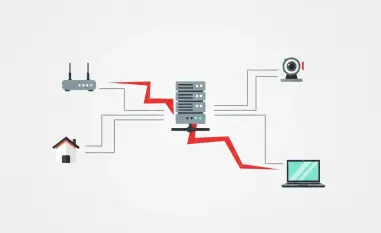In today’s highly interconnected world, cyber threats have evolved dramatically, expanding their reach beyond government and military targets to infiltrate the business sector. Companies across various industries, including finance, healthcare, retail, and utilities, find themselves in the crosshairs of sophisticated cyber attacks often orchestrated by nation-states. These formidable threats not only pose significant operational risks but also have the potential to disrupt entire economies. As a result, businesses have become frontline participants in a virtual battleground previously unanticipated. This evolving digital landscape necessitates a paradigm shift in how organizations perceive and implement cybersecurity strategies.
Recognizing Cybersecurity as a Strategic Imperative
Beyond IT: Embedding Cybersecurity in Core Business Strategy
The proliferation of nation-state cyber threats underscores that cybersecurity cannot remain solely within the realm of IT departments. Instead, it must be embraced as a pivotal strategic element integral to a company’s overall vision and operational framework. As cyber threats increasingly target corporate assets, safeguarding networks and systems must go hand in hand with protecting organizational trust and reputation. Companies that grasp the geopolitical implications of cyber threats and regard cybersecurity as an indispensable organizational asset are better equipped to withstand potential incursions. By integrating cybersecurity into core strategic planning, businesses can cultivate resilience and bolster long-term success. This approach not only fortifies defenses but also ensures that organizational priorities reflect the necessity of robust cybersecurity measures.
Advanced Threats Require Proactive Measures
Traditional cybersecurity defenses, such as firewalls and antivirus software, are often inadequate against the sophisticated threats posed by nation-state actors. A proactive and layered strategy is essential to combat these advanced threats effectively. Adopting a Zero Trust Architecture is a vital step, as it emphasizes continuous authentication and strict access controls, minimizing potential vulnerabilities. Additionally, incorporating threat intelligence can provide real-time insights, enabling businesses to anticipate and mitigate risks before they escalate. Employee education and awareness training also play a crucial role in defending against social engineering attacks, which exploit human factors as entry points into secure systems. By empowering employees with knowledge about potential threats and response protocols, organizations can significantly strengthen their overall security posture.
Enhancing Resilience Through Collaborative Efforts
Building Comprehensive Incident Response Plans
In the face of nation-state cyber threats, organizations cannot afford to operate in isolation. Implementing robust incident response plans is critical for minimizing the impact of cyberattacks. These plans should include predefined roles and responsibilities, clear communication channels, and regular simulations to ensure readiness. Incident response measures must also encompass rapid identification, containment, and recovery processes to swiftly address breaches and mitigate damage. By developing and regularly updating response plans, organizations can maintain a vigilant state of preparedness, ensuring swift and effective actions in the event of an attack. This proactive stance not only limits potential losses but also instills confidence among stakeholders by demonstrating a commitment to cybersecurity readiness.
The Role of Public-Private Partnerships
Effective defense against nation-state cyber threats demands collaboration beyond organizational boundaries. Public-private partnerships serve as potent tools in enhancing overall cybersecurity resilience. Governments can offer valuable insights into emerging threats, while private organizations contribute innovative solutions and technological expertise. Through collaborative information sharing, both entities can stay ahead of evolving cyber tactics and collectively strengthen defenses. These partnerships also facilitate resource optimization, enhancing collective security measures and enabling quicker response times to cyber incidents. Fostering such alliances ensures that businesses remain informed about potential threats and equipped with the necessary tools and strategies to counteract them effectively.
A New Era in Business Security
Cybersecurity as a Business Imperative
As the scope of nation-state cyber threats continues to expand, cybersecurity has transcended its traditional technical boundaries to emerge as a critical business imperative. Beyond mere compliance, it fundamentally shapes customer trust and directly impacts organizational viability. Companies must recognize their cybersecurity practices’ broader national security implications and commit to proactive adaptation and continuous innovation. This commitment involves not only investing in cutting-edge technologies but also cultivating a culture of vigilance and collaboration throughout the organization. By fostering an environment where cybersecurity is woven into the fabric of daily operations, businesses can not only safeguard their assets but also seize opportunities to thrive in the digital age’s challenging landscape.
Future Considerations and Strategic Adaptations
In our increasingly connected world, cyber threats have remarkably advanced, expanding their scope far beyond traditional targets like government and military entities to envelop the business realm. Industries spanning finance, healthcare, retail, and utilities are now prime targets for sophisticated cyber attacks, frequently orchestrated by nation-states. These threats present not only considerable risks that could disrupt operations but also pose the danger of destabilizing entire economies. Consequently, businesses have emerged as frontline participants in this unprecedented virtual battlefield. The shifting digital landscape mandates an essential change in how organizations view cybersecurity and craft strategies to protect themselves. Acknowledging the rise in cyber risks means businesses must adopt robust defense mechanisms and predictive measures to anticipate threats before they materialize. This proactive stance is crucial to safeguarding assets, maintaining consumer trust, and ensuring continuity amid the ever-present danger of cyber threats.













